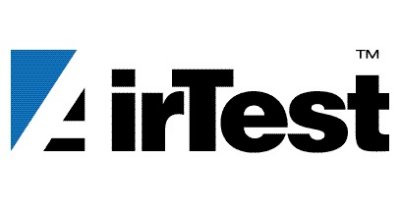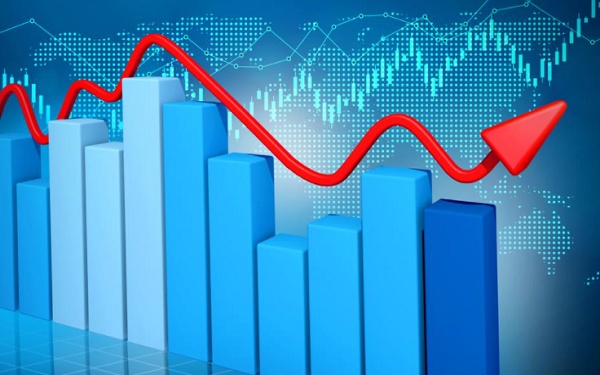
AirTest Technologies Inc. (TSXV: AAT)
A Green-Tech company specializing in sensors that improve commercial building operating efficiency and at the same time create energy savings.

Regardless of how closely you follow a sector or how much you think you know, there is always someone who knows more. And those people are company insiders.
One of the greatest investors of all time, Peter Lynch, once said: “insiders might sell their shares for any number of reasons, but they buy them for only one: they think the price will rise.”
And research seems to support this theory. A 2003 Harvard study found that company insiders buying their stocks beat the market by 11.2%.
Which brings us to AirTest Technologies Inc. (TSXV: AAT) (OTC: AATGF). On April 20, 2021, AirTest CEO Ted Konyi announced that Omni Marketing Group, a company controlled by AirTest Director Robert (Bob) Mebruer increased his AAT position in a private placement of 2.3 million units. The purchase brings his total direct and indirect ownership stake to 8 million shares and 2.3 million warrants.
Subject to TSX approval of the placement, ATT plans on using the proceeds of the sale to advance marketing and sales incentives for the company’s wireless sensor technology.
When commenting on the deal, Konyi said that “Having Bob and OMG participate in this financing is a great vote of confidence for the future of AirTest. As a very successful businessman, with interests across 67 operating companies and active in 42 countries, Bob brings a wealth of business experience and contacts to AirTest.”
But what does insider buying mean for retail investors looking to profit from stocks with insider buying?
Let’s start by covering who insiders are and what we mean by stocks with insider buying.
By definition, insiders are the directors, management, officers, or any other beneficial owners or entity, holding more than 10% of a company’s voting shares. And research has shown their trading activity to be fairly accurate in capturing firm-specific expectations as well as broader market sentiment.
The reasoning behind following insider stock buying is intuitive. Who else, other than insiders, has more up-to-date and complete information of their company’s current position and prospects? Executive, directors, and management are very well acquainted with all aspects of their business; they are miles ahead of analysts and portfolio managers regarding operational details and sector performance, not to mention individual retail investors.
By that logic, watching stocks with insider buying could be a strong signal of future stock prices.
The difference between illegal insider trading, where company insiders take advantage of material non-public information, and legal insider trading are regulatory reporting requirements. All insider transactions must be reported to the appropriate commission within a strict time frame.
Investors looking to follow insider stock buying can access up to date information for US or Canadian listed securities on either EDGAR (US) or SEDI (Canada)
SEC’s EDGAR Database for US Stocks
Except for the smallest microcaps, all US insider transitions must be filed with the SEC within two business days. Form-3 describes initial ownership, and Form-4 provides information on changes.
System for Electronic Disclosure (SEDI) for Canadian Stocks
Canadian listed companies are provincially regulated, and insider transaction reports must be filed on SEDI within five calendar days
Anyone has access to the information available on both EDGAR and SEDI, and several sites provide searchable databases of recent transactions, including Finviz (US) and Canadian Insider (Canada and US).
Here are five examples of blue-chip stocks that experienced heavy insider buying. When looking at insider stock buying, it is important to consider who is buying. Certain insiders like CEOs and CFOs may have more intimate knowledge than a director.
And the more insiders buying, the better; one person buying could be a one-off, multiple insiders buying send a much stronger signal.
Keurig Dr Pepper (NASDAQ: KDP)
Market cap: $51.1 billion
Insider buying: $988,238 by an officer and a director
Price: $26.00
Current price: $36.05
Mastercard (NYSE: MA)
Market cap: $360.65 billion
Insider buying: $265,000 by a director
Price: $265.00
Current price: $363.91
FedEX (NYSE: FDX)
Market cap: $82.10 billion
Insider buying: $560,200 by a director
Price: $112.04
Current price: $309.43
Dell Technologies (NYSE: DELL)
Market cap: $75.07 billion
Insider buying: $26.2 million by CEO and founder Michael Dell
Price range: $26.00-$37.00
Current price: $98.43
AbbVie (NYSE: ABBV)
Market cap: $205.64 billion
Insider buying: $508,732 by an officer and a director
Price: $87.87
Current price: $116.43
So, what does the recent AirTest insider buying signal for the stock’s future price? If history has anything to say, a large investment by a company insider sends a bullish signal on a company’s outlook.
While not all insider buys will be followed by elevated stock appreciation, and tacking insider stock buying alone will not guarantee significant returns, a pattern of insider buying says a lot about how company insiders feel about future prospects. Investors would be wise to pay attention.
Disclaimer: The company described in this article is a customer of NAI Interactive Ltd. This material is for informational purposes only and is not intended as a recommendation or offer or solicitation for the purchase or sale of any securities or financial instruments, or for transactions involving any financial instrument or trading strategy.